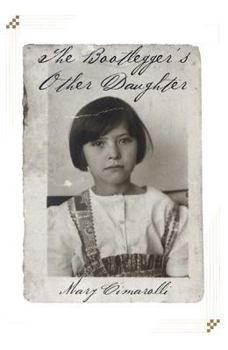The Bootlegger's Other Daughter: Volume 4
(Part of the Sam Rayburn Series on Rural Life, sponsored by Texas A&M University-Commerce Series)
Select Format
Select Condition 
Book Overview
The generation that toiled through the Great Depression and won the Second World War has become known as "the greatest generation." But not all of them qualified for that exaggerated epithet in the eyes of their own children. In this tender but unsparing memoir, Mary Cimarolli remembers a world in which the family home was lost to foreclosure, her father made his way by bootlegging, and school was a haven to hide from her brother's teasing. Her stories are about struggle and survival, making do and overcoming, and, ultimately, reconciliation. From her perspective as a child, she describes the cotton stamps and other programs of the New Deal, the yellow-dog Democrat politics and racism of East Texas, and the religious revivals and Old Settlers reunions that gave a break from working in the cotton patch. The colorful colloquialisms of rural East Texas that dot the manuscript help express both the traditionalism of the region and its changes under the impact of modernization, electrification, and the coming of war. Along with these regional and national trends, Cimarolli skillfully interweaves the personal: conflict between her parents, the death of her brother a few days before his sixteenth birthday, and her own inner tensions.
Format:Paperback
Language:English
ISBN:1585444472
ISBN13:9781585444472
Release Date:December 2004
Publisher:Texas A&M University Press
Length:184 Pages
Weight:0.65 lbs.
Dimensions:0.6" x 6.2" x 9.3"
Customer Reviews
1 rating
A Parallel Life
Published by Thriftbooks.com User , 17 years ago
In this memoir cleverly detailed by Mary Cimarolli of life in rural East Texas during the thirties and forties, she describes her own maturation and in the process, brings to life the members of her family as they interact with her over the years. Hardships and tragedy mark these times, together with a great deal of familial affection. Her father, a local bootlegger who was perceptive enough to stay out of jail, her mother, who held the family together, an older sister, who was a splendid role model, and a brother, who was the oil to her water, made up this complex mix. Cimarolli was the youngest, and with the possible exception of her father, the most interesting. As a backdrop for the changing times, she inadvertently describes the evolution of living conditions in our country before and after World War II. Many farm dwellings of that time offered little more than shelter from the elements and wood burning appliances for cooking and comfort. As she grew older, conveniences improved with the addition of electricity, washing machines, refrigeration, and indoor plumbing. She grew intellectually and discovered her place in the world of academia.






